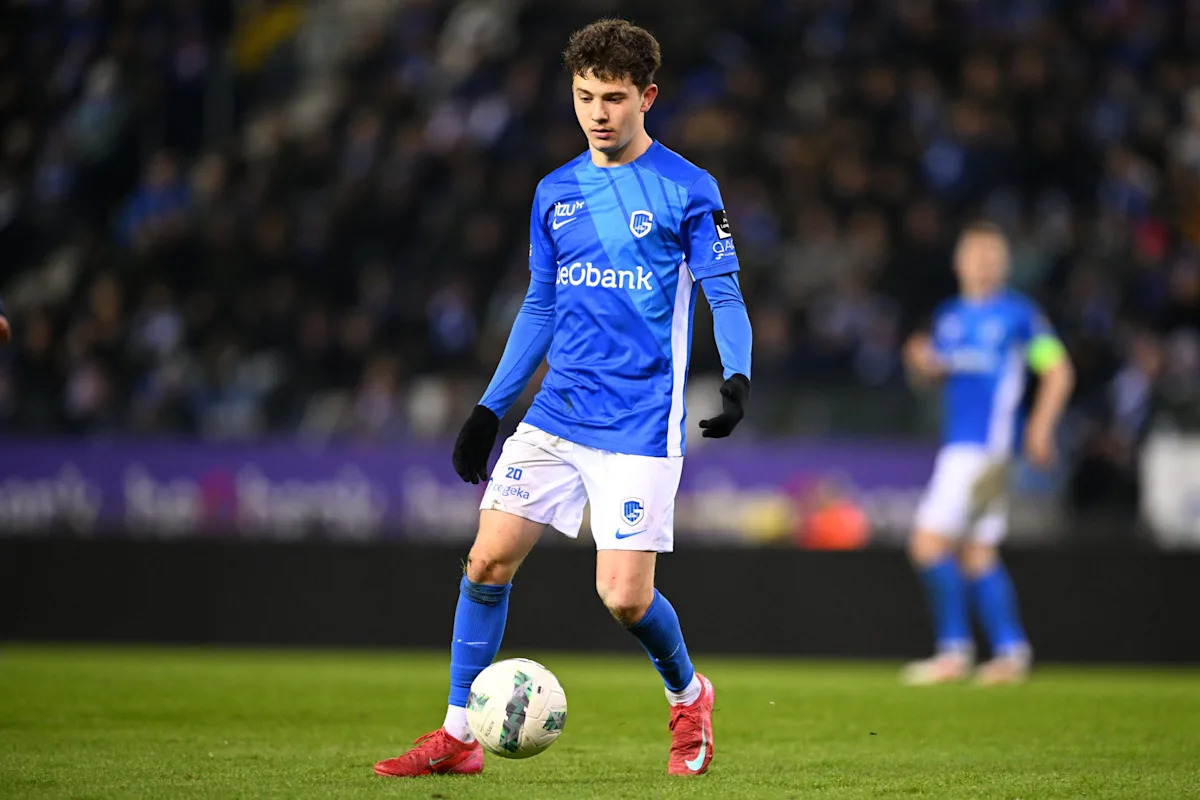Arsenal Football Club is making headlines as they enter advanced discussions to sign Konstantinos Karetsas, a promising 17-year-old talent from Genk. The potential deal, valued at up to €45 million, underscores the club’s commitment to nurturing young talent while simultaneously curating a strong squad for competition. This strategy is not merely an investment in a player but also represents a long-term vision aimed at rebuilding the team’s legacy.
Karetsas has emerged as a significant name in European football, particularly following his impressive performances in the Jupiler Pro League and a stellar showing with the Greek national team, where he contributed to a notable 3-0 victory over Scotland earlier this year. His style of play has drawn comparisons to a young Cesc Fabregas, particularly regarding his control, vision, and understanding of the game—qualities that not only set him apart from his peers but also indicate immense potential.
Arsenal’s sporting director, Andrea Berta, is spearheading the negotiations with Karetsas’s management, leveraging a relationship that facilitated other successful transfers, including that of Albert Sambi Lokonga. The Gunners are keen on finalizing the deal early to fend off interest from other European giants, including Chelsea, Bayern Munich, and Paris Saint-Germain, all of whom are rumored to be monitoring the midfielder closely.
Should Karetsas officially join Arsenal, he would become the most expensive Greek player in history, surpassing the previous record of €36 million set by Kostas Manolas when he moved to Napoli in 2019. However, the approach seems calculated; rather than rushing him into the first team at the Emirates, Arsenal’s plan is to allow him to stay on loan at Genk for an additional season. This decision reflects a mature understanding of player development, emphasizing the importance of first-team football for youngsters before introducing them to the rigorous demands of the Premier League.
This youth-focused strategy is part of Arsenal’s broader recalibration, as the club appears to be moving away from the short-term fixes of the past towards a more sustainable model. With Karetsas representing a bright prospect for the future, Arsenal is building a framework not only to contend this season but also to ensure they remain competitive in the years to come. This dual approach is crucial as they balance immediate needs with long-term aspirations.
Currently, Arsenal is in parallel discussions with RB Leipzig regarding striker Benjamin Sesko, who had an impressive season scoring 21 goals. As part of their wider plan, Berta is also negotiating a one-year contract extension for Thomas Partey, amidst interest from several clubs. This dual focus highlights how Arsenal is crafting a title-contending squad while simultaneously laying the groundwork for future successes.
Fans have every reason to be optimistic about Karetsas’s potential arrival. While he may not be a household name at this point, his qualities at such a young age echo those of Fabregas when he first emerged on the scene. His ability to dictate play and maintain composure under pressure demonstrates that he possesses skills that can be further honed over time.
The decision to allow him to remain in Belgium for an additional season speaks volumes about the club’s philosophy. It reflects an unwavering trust in the developmental process and an understanding that rushing talents into the spotlight can hinder their growth rather than expedite it. Arsenal appears committed to identifying elite talent early and cultivating it—a hallmark of the most successful clubs around the world.
With Berta’s strategic vision starting to take shape, his influence on Arsenal’s transfer strategy is palpable. The ongoing negotiations around Karetsas, combined with their discussions about Sesko and Partey’s future, illustrate a well-coordinated effort behind the scenes. If Karetsas eventually makes the move to North London, he won’t just carry the mantle of being the most expensive Greek footballer; he has the potential to become a cornerstone of a new generation at Arsenal—one that is not just bright but also meticulously planned.
The overarching narrative here is one of optimism and a renewed hope for Arsenal supporters. The club’s direction, aimed at unearthing and nurturing young talent while addressing immediate team requirements, is indicative of a well-thought-out strategy. As these developments unfold, the Gunners are showcasing a vision not just for the present but also a sustainable approach for the future.
In summary, the potential signing of Konstantinos Karetsas signals more than just a transfer—it embodies Arsenal’s commitment to blending youth with experience. The excitement surrounding this deal is a testament to the club’s ambition to reclaim its place among Europe’s elite while firmly investing in the talent of tomorrow. As fans look ahead, there is a palpable sense of anticipation about what the future holds for both Karetsas and the club itself.
Source link









